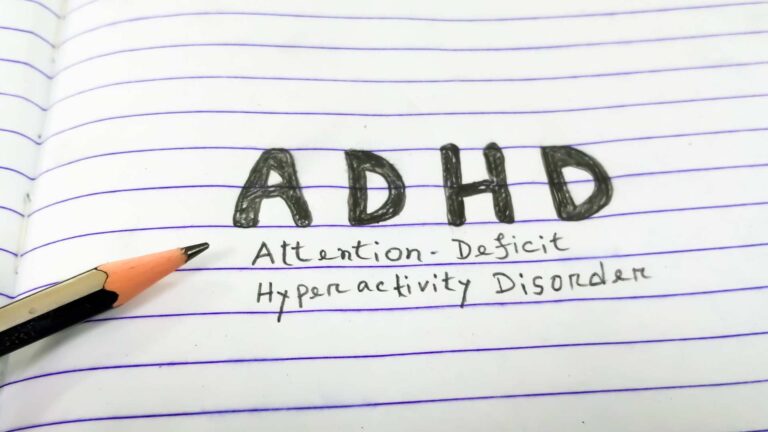Table of Contents
How do you deal with BCBA burnout?
Caring for someone is immensely rewarding yet complex, demanding extraordinary dedication and immense patience. Often, our thoughts about caregivers immediately turn to parents, relatives, or babysitters. However, some professionals dedicate themselves to caring for and educating others, such as clinicians, teachers, psychologists, and therapists, including Board Certified Behavior Analysts (BCBAs).
Burnout poses a significant risk for anyone who spends a considerable amount of time caring for and educating others. This risk is equally valid for those working with individuals with additional needs, like children with autism spectrum disorder (ASD). BCBA burnout is a real issue, affecting many professionals who dedicate their remarkable efforts to teaching essential skills to those on the spectrum. Their commendable work can consume most of their time, leading to the inevitable question: How do you deal with BCBA burnout?
It is equally crucial to care for those who care for others. In this blog post from ABA Centers of Georgia, we aim to provide seven strategies for managing BCBA burnout.
Understanding the Role of the BCBA
The BCBA is a healthcare professional who specializes in understanding and managing human behavior. They train to adhere to the guidelines and principles of Applied Behavior Analysis (ABA) in their daily practice. ABA therapy, a scientific approach to addressing learning and behavioral issues, is particularly beneficial for individuals diagnosed with ASD.
In their role, a BCBA conducts a comprehensive assessment of an individual’s behavior to identify the root causes of problematic behaviors that may hinder the development and daily functioning of individuals with autism. This assessment includes direct observation, data collection, and interaction with the individual and their environment.
Following the assessment, the BCBA devises a tailored therapy or intervention plan based on the collected data. This plan incorporates specific ABA techniques and strategies, offering the necessary guidance for the Registered Behavior Technician (RBT) to instruct the client in skills that reduce negative behaviors and bolster strengths.
BCBA Burnout: Understanding the Phenomenon

Working with individuals facing behavioral challenges or developmental disorders entails a significant emotional and psychological toll, which are primary contributors to BCBA burnout.
The management of complex and challenging behaviors can become emotionally, mentally, and physically draining over time. Moreover, the responsibility to design and implement behavioral intervention plans within constrained timeframes can induce stress. BCBAs often experience feelings of inadequacy when their therapy plans do not meet the expected outcomes.
Furthermore, the increase in autism spectrum disorder diagnoses in the United States points to a rising demand for autism treatments. According to the Centers for Disease Control and Prevention, 1 in 36 children receives an ASD diagnosis. This trend leads to heavier workloads for therapists, affecting the time and attention BCBAs can allocate to each client. Consequently, BCBA burnout may stem from cumulative stress related to caseloads and the emotional investment in their clients and families.
Why Is Preventing BCBA Burnout Critical?
According to a study conducted by the National Library of Medicine, approximately one in three healthcare professionals experiences burnout at some point in their careers. This burnout can affect not only the well-being of professionals but also the quality of care they can provide. The same study characterizes burnout as a syndrome consisting of emotional exhaustion, depersonalization, and a diminished sense of personal accomplishment, leading to decreased work effectiveness. This phenomenon is most prominent in professions involving direct interaction with people.
Specifically, BCBA burnout can manifest in various aspects of professional and personal life, impacting both the well-being of the professional and the quality of the services provided, resulting in:
- Decreased job performance
- Lower job satisfaction
- Impacts on mental health
- Strained working relationships
- Reduced effectiveness of ABA therapy
- High turnover rates
- Work-life imbalance
Strategies for Mitigating BCBA Burnout
To safeguard the welfare of BCBAs and ensure the high quality of their services, ABA agencies must remain vigilant for burnout indicators while advocating for preventative strategies and supporting those affected by it. Cultivating a supportive work environment, offering self-care resources, managing workloads effectively, and encouraging transparent communication are essential steps in mitigating BCBA burnout. Below, we present several approaches to help ABA therapists maintain their mental and emotional well-being in the workplace:
1. Establish Boundaries: Creating a distinct separation between professional duties and personal life is vital to prevent work demands from encroaching on personal time and foster a balanced lifestyle.
2. Dedicate Time to Self-Care: Engaging in self-care practices is paramount for BCBAs and all caregivers to ward off burnout. Activities such as exercising, eating well, and ensuring sufficient rest are foundational to maintaining health. Setting aside moments for enjoyable pastimes and hobbies that encourage relaxation is equally important.
3. Communicate Feelings: It is beneficial to allocate time to ponder and articulate feelings concerning workload, emotional state, relationships, and sources of burnout. Employing methods like journaling, seeking therapy or counseling, and conversing with close ones can provide significant relief.
4. Cultivate Supportive Relationships: Possessing a robust support network is crucial for everyone. Enhancing personal relationships serves as a strategy to combat BCBA burnout, bolstering support and cooperation during challenging periods.
5. Embrace Rest: Integrating brief, regular breaks throughout the workday can rejuvenate both mental and physical stamina, aiding in the prevention of burnout.
6. Organize Workload: For ABA therapists, effectively managing workload is essential to stave off burnout. Establishing clear priorities and realistic objectives, segmenting large tasks into smaller, more manageable portions, and adopting efficient time management strategies can mitigate feelings of being overwhelmed.
7. Choose a Supportive Agency: ABA agencies must prioritize the well-being of their therapists. Promoting a positive workplace culture, providing continuous training, ensuring equitable work distribution, offering professional growth opportunities, and facilitating open dialogue are critical measures. Seeking employment in organizations that respect the balance between work, health, and personal life, offer flexible working conditions, and emphasize wellness is fundamental to preventing BCBA burnout.
Caring for Our Professionals at ABA Centers of Georgia
BCBA burnout is a significant concern that deserves serious attention. Stress impacts not only the personal well-being of professionals and caregivers but also the quality of their work. At ABA Centers of Georgia, we prioritize the well-being of our therapists and clients. We understand that actively preventing BCBA burnout is essential to delivering top-notch autism treatment services in Alpharetta, Atlanta, Buckhead, and Marietta.
In our centers, we offer continuing education through our ABA Academy of Excellence, flexible scheduling, and manageable caseloads. We appreciate the dedication of our clinicians, BCBAs, and RBTs and promote self-care practices both in the workplace and in their personal lives.
If you’re interested in joining our team as a BCBA or RBT, please explore our website for current job openings. For more details about ABA therapy, don’t hesitate to call us at (855) 929-5058 or contact us online for a complimentary consultation. We’re here to support you.









